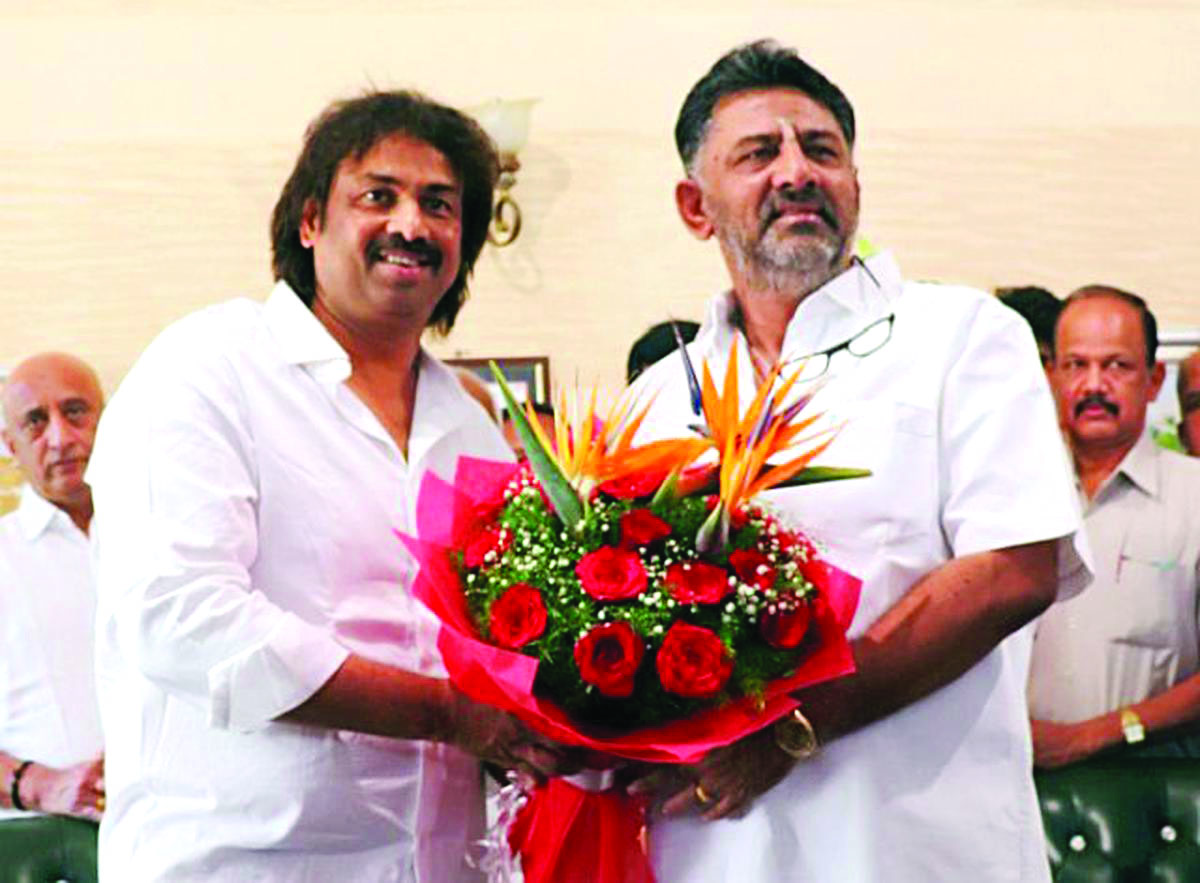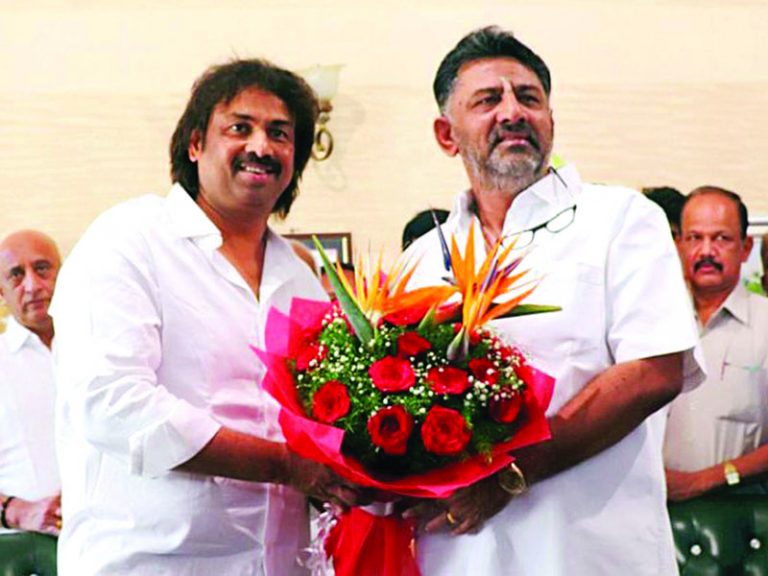Karnataka: Textbooks ping pong
Reshma Ravishanker (Bengaluru)

Bangarappa (left): additional booklets
The newly elected congress government of Karnataka (pop.69 million), sworn in on May 19, is wasting no time in implementing its pricey election promises. The government has gone into overdrive to implement the Congress party’s five pre-election “guarantees” — 200 units of free power, 10 kg of rice per person in Below Poverty Line (BPL) households, free-of-charge travel for women in government buses, Rs.2,000 per month for women heads of the family and Rs.3,000 for unemployed graduates. Moreover, it has moved with alacrity to fulfill its election manifesto promise of rewriting school textbooks to wipe out the alleged hindutva bias of the previous BJP government. On June 17, the education ministry issued a circular revoking 18 changes introduced by its predecessor BJP government in Kannada and English medium social sciences textbooks for children in classes VI- X, prescribed for 78,424 state board affiliated schools.
The changes include removal of a chapter on RSS (Rashtriya Swayamsevak Sangh) founder Dr. Keshav Baliram Hedgewar and an essay authored by right-wing activist Chakravarti Sulibele. A letter written by former prime minister Jawaharlal Nehru to his daughter Indira Gandhi, and chapters on vedic culture, rise of new religions, human rights, women freedom fighters are among seven new introductions.
However, with the new academic year having already commenced on May 31, and textbooks printed and dispatched (with the old content) to all government and aided schools statewide, Madhu Bangarappa, the newly inducted minister for school education, announced that the revised content will be printed and distributed as additional booklets.
The backstory to the textbooks revision row is that in September 2021, BJP education minister S. Suresh Kumar constituted a 15-member Textbook Revision Committee (TRC) headed by Rohith Chakratirtha, a Kannada language novelist and staunch BJP and sangh parivar (RSS/BJP family) supporter. Seven months later, the TRC submitted its report and recommended changes in Kannada and English social science texts. Chapters on Mysuru’s heroic Muslim ruler Tipu Sultan, social reformer Basavanna, Dravidian movement pioneer Periyar and social reformer Narayana Guru, who opposed the caste system, written in previous textbooks, were excised, and new chapters eulogising RSS/hindutva ideology were introduced. Undeterred by criticism from opposition parties and academics, the BJP government (2019-2023) went ahead with its textbook revision exercise and new textbooks were printed and distributed to students for the academic year 2022-23. Now, the newly elected Congress government has revoked these changes.
The revision/rewriting of textbooks by the new Congress government after commencement of the new school academic year in June, has not found favour with academics and private schools in the state. “We are one month into the new academic year. The first formative assessment is scheduled for July. We have no idea when these booklets will come. All this confusion is sure to disrupt teaching-learning,” says T. Lokesh, president, Registered Unaided Private Schools Association (RUPSA), which has a membership of 13,000 budget private schools statewide.
With newly elected governments at the Centre and states decreeing revision of school texts to reflect their ideological biases as soon as they are elected, educationists recommend that schools and teachers reduce dependency on textbooks for teaching-learning. “The National Education Policy 2020 clearly states that textbooks are one among many resources to be used to achieve curricular objectives. All political parties have their agendas, but the curricular objectives of education institutions and teachers cannot change as they are derived from the aims of education which emanate from the vision of society as presented in the Constitution. If some chapters are deleted from textbooks or added, it is the job of the teacher/educator to seek out other material to achieve the curricular goal. Teachers should not become hostages to textbooks and that’s why NEP 2020 suggests use of a variety of material,” advises B.S. Rishikesh, Head — Hub for Education, Law, and Policy at the Azim Premji University, Bengaluru.
This is good advice. But it requires massive teacher training and upgradation — not yet on the new government’s radar. Meanwhile, in a break from the tradition of appointing state government bureaucrats, the new Congress government has appointed Subha Kalyan from the IAS cadre, as head of the Karnataka Textbooks Society. According to sources in the education ministry, her first brief is to ensure the 18 textbook revisions are incorporated and the textbook addenda (booklets) are distributed to class VI-X students followed up by an extensive textbook rewriting exercise.
Yet even as teachers juggle textbooks and revision booklets, the silver lining is that children will become acquainted with both points of view.
















Add comment